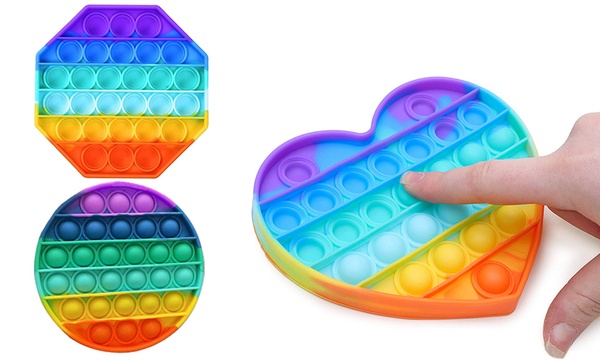Childhood is a crucial period for physical, cognitive, and emotional development. During these formative years, play becomes more than just a way to pass time—it serves as a foundation for learning. One of the most effective tools for nurturing this growth is the thoughtful use of play toys. Specifically designed to engage children in hands-on activities, these toys promote both fine and gross motor skill development as well as essential social behaviors.
While the benefits of play are well recognized, parents, educators, and caregivers often underestimate the importance of selecting the right types of toys to support various developmental stages. From puzzles and building blocks to role-playing sets and interactive games, each toy can play a significant role in shaping a child’s skills.
Today, there are a variety of Children’s Play Toys available that are crafted not only for fun but also to enhance developmental outcomes. These toys come in different sizes, textures, and formats to engage multiple senses and learning pathways. The goal is to ensure that playtime also becomes a time for meaningful growth—physically, socially, and intellectually.
Enhancing Motor Skills Through Play
Motor skills are broadly divided into two categories: gross motor skills, which involve larger movements using the arms, legs, and torso, and fine motor skills, which focus on small, precise movements like using fingers and hands. Toys that require physical activity, manipulation, and coordination are particularly useful for improving these skills.
Gross Motor Skills Development
Toys such as ride-on vehicles, climbing sets, and sports equipment help children build core strength, balance, and coordination. These toys encourage movement, which is crucial for healthy muscle and bone development. Outdoor toys like hula hoops, balls, and jump ropes are excellent for promoting endurance and spatial awareness.
Fine Motor Skills Development
Toys like stacking rings, shape sorters, building blocks, and arts and crafts kits help develop hand-eye coordination and finger dexterity. These types of toys encourage children to grasp, twist, press, and manipulate small pieces, strengthening the muscles required for writing, dressing, and other everyday tasks.
Fostering Social Learning Through Play
In addition to physical growth, children’s toys play a critical role in developing social skills. Through play, children learn how to interact with others, understand rules, resolve conflicts, and express emotions.
Cooperative Play and Sharing
Toys that require multiple participants, such as board games or construction sets designed for group use, encourage teamwork and communication. Children learn the value of sharing, turn-taking, and negotiating—all key components of healthy social interaction.
Role-Playing and Imagination
Dolls, action figures, kitchen sets, and costumes allow children to act out real-life scenarios and imaginative stories. This form of pretend play helps develop empathy, language skills, and emotional intelligence as they explore different roles and perspectives.
Learning Through Observation
Children also learn social behavior by watching others during play. Structured group activities or guided play sessions give them opportunities to observe how their peers interact, follow rules, and express themselves. This observation leads to improved understanding of social norms and behaviors.
Toys That Grow With Your Child
One of the best features of children’s toys is their adaptability across different stages of growth. For infants, simple toys with bright colors and sounds are perfect for sensory exploration. Toddlers benefit from toys that involve stacking, sorting, and pushing or pulling, which strengthen motor skills and introduce basic problem-solving.
As children grow older, they begin to enjoy more complex toys that challenge their critical thinking and foster peer relationships. Board games, science kits, and construction sets introduce them to strategic thinking and collaborative problem-solving.
Choosing toys that evolve with a child’s development not only keeps them engaged but also ensures that they are continually being challenged in new and beneficial ways.
Choosing the Right Play Toys
When selecting toys for motor skill and social development, consider the following guidelines:
- Age Appropriateness: Always choose toys that are suitable for your child’s age to ensure safety and engagement.
- Skill Level: Look for toys that challenge but don’t frustrate your child, supporting progress without discouragement.
- Variety: Offer a mix of physical, cognitive, and imaginative play options to support all areas of development.
- Safety: Ensure that toys are made from non-toxic materials and are free from small parts for younger children.
Final Thoughts
Play is an essential part of childhood development, and the right toys can significantly influence how children grow physically, socially, and emotionally. Children’s play toys serve as valuable tools in helping children build motor coordination, engage in social interactions, and foster imagination.
Whether it’s through building, pretending, or problem-solving, children are constantly learning through play. As parents and educators, providing the right environment and materials for that play is one of the most important things we can do to support their journey of growth and discovery.

